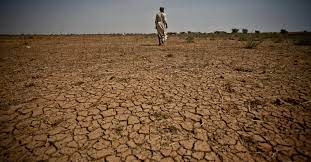
THE production of goods and services in the global economy is divided into three distinct categories, namely primary, secondary, and tertiary production. Primary production involves the extraction of raw materials from the environment, such as farming and mining. Secondary production involves the processing of raw materials into finished products. Tertiary production involves the provision of services to consumers or businesses, such as banking or retailing.
The African continent is known to be the hub of natural resources, rich in precious resources like minerals and cultivable land. However, most African economies are still developing while most western countries are already developed. Notably, developing economies are often characterized by the dominance of primary production activities while developed economies heavily rely on the tertiary sector. While Africa has the most expensive natural resources, western countries have become global economic giants despite lacking the venerated natural resources, and this has been publicly attributed to exploitation of African resources. Meanwhile, in recent years, there has been a shift in global economic activities away from primary and secondary production towards tertiary production in western countries. This shift has been driven by a number of factors including technology, globalization, and volatile consumer preferences. As a result, the value generated from tertiary production in western countries surpasses that of primary production in Africa.
One of the main reasons for this shift is technological advancements that have enabled businesses to automate processes that were previously done manually. This has allowed businesses to reduce costs while increasing efficiency and productivity. As a result, businesses in western countries have been able to increase their profits while reducing their reliance on primary resources from Africa.
Globalisation has also played an important role in this shift towards tertiary production in western countries. Globalization has allowed businesses to access new markets around the world with greater ease and this has enabled businesses to increase their profits while reducing their reliance on primary resources from Africa. The change in consumer preferences has also contributed to this shift towards tertiary production in western countries. Consumers are increasingly looking for convenience when making purchases and are willing to pay more for it. This demand for convenience has led many businesses to focus on providing services rather than producing goods which require more manual labor and resources from Africa.
The shift towards tertiary production in western countries has had a significant impact on African economies which rely heavily on primary resources for economic growth and development. The decline in demand for African primary resources has resulted in lower prices for these resources which have reduced revenues for African governments who rely heavily on taxes generated from international trade for public spending programs such as health care and education initiatives.
A shift from primary production to secondary and tertiary heavily relies on availability of capital. Africa, especially Zimbabwe has succumbed to depressed investments due to a number of reasons that range from the need to develop home countries by foreign investors, to poor policies by the African countries. In a bid to force investment, Zimbabwe has introduced a ban on the exportation of base mineral ores, while encouraging processing of the minerals before exportation. Theoretically this may seem like a breakthrough to shift from reliance on primary resource-based economy to secondary and tertiary stages. However, to remain economic giants, western countries have positioned such moves for failure by restricting inter-country trades with Zimbabwe. This has seen most locally based companies exporting raw products to a different country for processing in-order to ensure smooth flow of the finished products on the international market. This restriction has also worked in deterring investments in the processing of goods locally due to a “controlled market”.
Duma is a financial analyst and accountant at Equity Axis, a leading media and financial research firm in Zimbabwe. — [email protected] or [email protected], Twitter: TWDuma_
- Mavhunga puts DeMbare into Chibuku quarterfinals
- Open letter to President Mnangagwa
- Feature: ‘It’s worse right now than under Mugabe’: Sikhala pays the price of opposition in solitary cell
- Masvingo turns down fire tender deal










